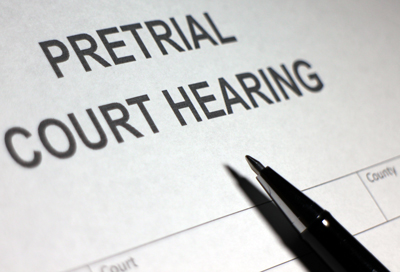The importance of pre-trial
Pre-trial is an answer to the clarion call for the speedy disposition of
cases. Although it was discretionary under the 1940 Rules of Court, it was
made mandatory under the 1964 Rules and the subsequent amendments in 1997.
Hailed as "the most important procedural innovation in Anglo-Saxon justice in
the nineteenth century," pre-trial seeks to achieve the following:
- The possibility of an amicable settlement or of a submission to alternative modes of dispute resolution;
- The simplification of the issues;
- The necessity or desirability of amendments to the pleadings:
- The possibility of obtaining stipulations or admissions of facts and of documents to avoid unnecessary proof;
- The limitation of the number of witnesses;
- The advisability of a preliminary reference of issues to a commissioner;
- The propriety of rendering judgment on the pleadings, or summary judgment, or of dismissing the action should a valid ground therefor be found to exist;
- The advisability or necessity of suspending the proceedings; and
- Such other matters as may aid in the prompt disposition of the action.[1]
 Pre-trial promotes efficiency of case proceedings by allowing the parties to
stipulate on facts and admissions that no longer need proof, and to agree on
key issues, among others. It protects the right to speedy trial without
compromising substantive justice.[2]
Pre-trial promotes efficiency of case proceedings by allowing the parties to
stipulate on facts and admissions that no longer need proof, and to agree on
key issues, among others. It protects the right to speedy trial without
compromising substantive justice.[2]
The importance of pre-trial in civil cases cannot be overemphasized.[3] Time
and again, the Supreme Court has recognized "the importance of pre-trial
procedure as a means of facilitating the disposal of cases by simplifying or
limiting the issues and avoiding unnecessary proof of facts at the trial,
and [xxx] to do whatever may reasonably be necessary to facilitate and
shorten the formal trial."[4] The need for strict adherence to the rules on
pre-trial thus proceeds from its significant role in the litigation
process.[5]
This is not to say, however, that the rules governing pre-trial should be,
at all times, applied in absolute terms. While faithful compliance with
these rules is undoubtedly desirable, they may be relaxed in cases where
their application would frustrate, rather than facilitate, the ends of
justice.[6] The relaxation of these rules, however, is contingent upon a
showing of compelling and persuasive reasons to justify the same.[7]
[1] The Philippine American Life & General Insurance Company v. Enario,
645 Phil. 166, 176 (2010) [Per J. Perez, First Division], citing Balatico Vda.
De Agatep v. Rodriguez, et al., 619 Phil. 632, 642-643 (2009) [Per J. Peralta,
Third Division], quoting Tiu v. Middleton, 369 Phil. 829, 835 (1999) [Per J.
Panganiban, Third Division].
[3] Spouses Salvador v. Spouses Rabaja, 753 Phil. 175, 192 (2015).
[4] Lim v. Animas, 159 Phil. 1010, 1012 (1975).
[5] Spouses Salvador v. Spouses Rabaja, supra note 45, at 191-192.
[6] Vette Industrial Sales Co., Inc. v. Cheng, 539 Phil. 37, 48, 49 and 52
(2006).
[7]See Domingo v. Spouses Singson, G.R. Nos. 203287 & 207936, April 5,
2017, p. 9.



